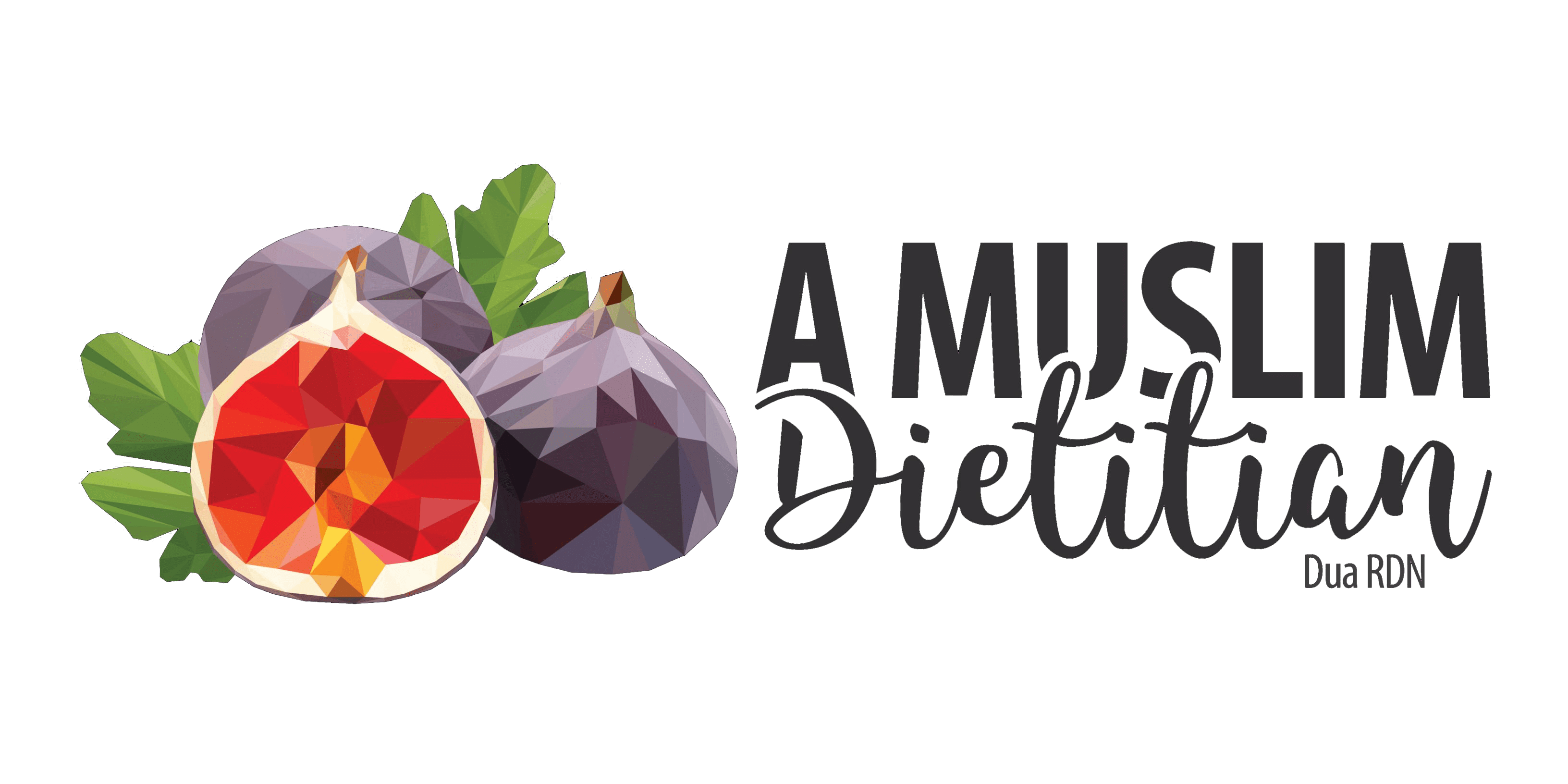Assalamualikum, peace be upon you all, and hello friends,
Have you ever experienced that deep sweet craving in Ramadan? Chances are, you answered yes to this question because you are human! So, what is it with these cravings? Are you addicted to sugar? Should we give into them? Should we ignore them?
I know these are a lot of questions so let’s break it down. The answer, in my experience, is two-fold:
1️⃣ A physiological reaction to restriction and “starvation” occurs when we are fasting. There is a conversation on sugar possibly being addictive but the research isn’t all that convincing yet. The studies completed are all animal studies and there is not enough evidence to support the thought. There are also a few other possibilities:
- In times of hunger, our brain is in need of energy and as sugar is the primary energy source of the body, we crave sugar rich foods.
- Perhaps these craving and addiction-like behaviors may be related to our perceptions of sugary foods as “bad” and in turn our voluntary restriction of them.
- Our gut health and microbiome (the bacteria within our intestinal tract) also play a role on our cravings.
That’s a lot of information to basically say, yes there is a probable physiological response to fasting that causes us to crave sugary foods but we don’t really understand the exact mechanism just yet!
2️⃣ And then, there are the psychological and emotional factors. Ramadan is a time full of traditions for many of us and oftentimes these exist around food. Qatayef and kanafa for my Arabs from the Sham region, gulab jamun and kheer for those from the Asian sub-continent and I’m sure others have their own sweet traditions. Sweetened milk drinks are also very common for many Muslim households at the time of breaking fast.
I know for my family, we ONLY make qatayef in Ramadan, we even call them Ramadan Pancakes in English. My siblings and I had this tradition of grabbing Starbucks cold coffees (the ones in the refrigerated section) whenever we were going to pull an all-nighter at the mosque in Ramadan. A lot of these sweets are tradition and they make us feel warm and fuzzy.
So, should we just give into these cravings?
The concern with going high sugar regularly in the evening is that it can lead to imbalances in blood sugar, sugar crashes, eating too much, and excess thirst. I’m not a fan of restriction BUT my response to this one is nuanced. Ramadan fasting can really throw a few things off in our bodies as you can see in #1, so it’s not a simple yes or no question.
Below are a few tips that can help you enjoy those sweets without them becoming burdensome on the body:
- Break your fast on dates as is recommended in the sunnah (a glass of water is a good addition too). Dates are like a shot of glucose for the body, a very quick source of energy and other nutrients. This allows the body to quickly bounce back. If dates are not available or you do not prefer dates, the next best choice is plain milk.
- After the dates, give yourself a 15-20 minute break before jumping into the actual meal (like breaking for Maghrib prayer). This gives your body just a little bit of time to adjust to having food.
- Practice mindfulness when eating, it is difficult when you have been fasting all day but having the dates and then the break allows you to come to the break-fast meal in a less ravenous state. For more information on Mindful Eating, download my Mindful Eating Guide.
- Enjoy high quality complex carbohydrates like whole grains or starchy vegetables with your meal. The plate method makes it easy to keep it balanced, fill 1/4 of your plate with a starch. They provide a lot of nutrients and increased satisfaction post meal.
- Space out the goodies that you love over the month, give yourself permission to have them but respect your body by listening to your hunger and fullness. Instead of making the dessert spread while fasting, pick a dessert to make AFTER you have eaten and try to make less of it (there’s no need to have seconds at 3am (pre-dawn meal)).
- Create new traditions that can be just as warm and inviting for your family and friends, these can be food related or non-food related. Maybe for food related ones, make drinking water an experience or a game (haha I know, I know, who on earth would do that? Just had to throw it out into the universe). Or try having fruit for dessert sometimes or just skipping something sweet all together and replacing it with an enjoyable activity. Other food/non-food related activities could be to create goody baskets for neighbors, friends, colleagues, or classmates.
- Make Ramadan less about the food and more about the experiences. These huge feasts were not a part of our Prophet’s Ramadan, there were actually many days where he (pbuh) sustained himself on only dates and water. Not that this is a recommendation I am making but perhaps a perspective shift. An example of experiences could be activities surrounding charity like a charity jar at home with a daily check-in or volunteering individually or as a group.
I hope these help! I pray you have a Ramadan that allows you to grow in your faith. Please let me know if you have any questions.
Warmly,
Dua Aldasouqi, MA, RDN
Certified Health Coach
PS. Don’t forget to snag my Mindful Eating Guide!
